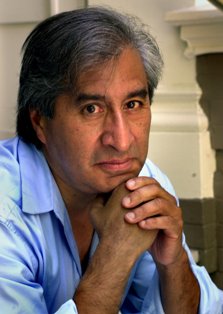“I think brown marks a reunion of peoples, an end to ancient wanderings. Rival cultures and creeds conspire with Spring to create children of a beauty, perhaps of a harmony, previously unknown. Or long forgotten. ”
― Richard Rodriguez, Brown: The Last Discovery of America.
In his book Brown: The Last Discovery of America, Rodriguez reflects on the color brown and explores issues of race, arguing that America has been brown since its inception, as he himself is. The son of Mexican immigrants, he reflects on what it means to be Hispanic in America and how Latino immigrants have impacted American culture, changing it from a society that has traditionally seen itself as simply black and white.

Books should confuse. Literature abhors the typical. Literature flows to the particular, the mundane, the greasiness of paper, the taste of warm beer, the smell of onion or quince. Auden has a line: “Ports have names they call the sea.” Just so will literature describe life familiarly, regionally, in terms life is accustomed to use — high or low matters not. Literature cannot by this impulse betray the grandeur of its subject — there is only one subject: What it feels like to be alive. Nothing is irrelevant. Nothing is typical.
Recorded in 2003 at Cambridge Forum

Richard Rodriguez has authored a “trilogy” on American public life and his private life—Hunger of Memory, Days of Obligation, and Brown—concerned, respectively, with class, ethnicity, and race in America. He has also worked as a journalist on television and in print.
